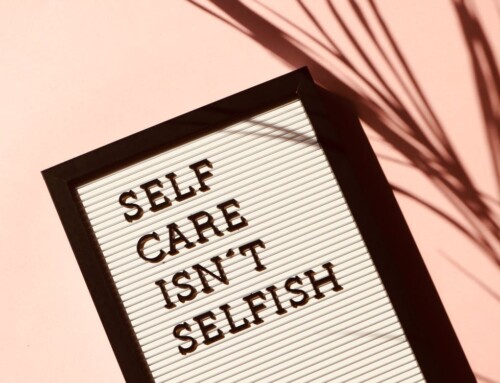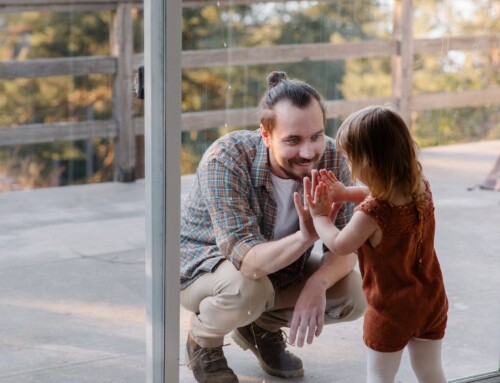Is Your Toddler a Bully? | Preschool Bullies Channel 13 | 7 Tips for Parents
Could your toddler be a bully-in-training? Television shows like Toddlers & Tiaras show preschool aged girls hitting and bullying each other and their parents. Behavior that typically may be identified as bullying for older children may be excused as appropriate for toddlers. However, bullying at any age should be taken into consideration, whether the child is in preschool, middle school or high school.
Channel 13 Interviews our Total Life Counseling Expert Jada Collins
Middle school and High school bullies are a parent’s worst nightmare. Most parents do their best to raise their children in a stable, loving home where they are taught to be confident and love themselves. No parent wants to see all of that taken away by another child. But nowadays we almost expect it, so a lot of parents try to prepare their children for bullies after elementary school.

What some people don’t know is that even preschoolers can face bullies (or be guilty of bullying others). And we thought eating play-doh was the worst thing they could do. What may seem like play fighting to some is actually a form of bullying. Pushing, hitting, and yelling at other children (usually younger/smaller) can actually be an indicator of bullying tendencies that may or may not be an issue later on in your child’s life.
Allowing this behavior to occur now may encourage acts of bullying later. And while now it may be harmless, it wont be in a couple of years. We have published many articles in the past that talk about how we can stop bullying by encouraging our children to speak up when facing bullies. But what if our child IS the bully?
By discouraging a child’s tendencies to bully even at a very young age, it hinders the progress of bullying in our world. If it stops now, it is less likely to occur later. Yes, we have to take responsibility as parents to prepare our kids for the harsh reality of bullying but it’s just as important for us to make sure that they aren’t the ones doing the bullying.
More Videos on This Topic
1. Don’t Call it Bullying! If your toddler grabs a toy from or is shoved by another toddler, don’t jump to the conclusion that either toddler is a bully, says psychotherapist Diane Lang. Toddlers act on their impulses, and aren’t intentionally cruel.
2. Display the Behavior You Want to See in Your Child. Children learn through imitation and role modeling. Think about what you say to your kids, and how you say it. And when you don’t like your child’s behavior, explain why  and how it could hurt other people.
and how it could hurt other people.
3. Use Different Media. Read age-appropriate books with your child regularly and ask open-ended questions like “Why do you think that guy in the book was hurting her feelings?” Watching TV shows like Sesame Street and Dora the Explorer is another great way to for kids to learn about diversity being okay.
4. Volunteer Together. If you get your kids involved outside the house and school in simple ways, you’ll be teaching them that people are not only different, but okay. Your toddler can help with Meals on Wheels or volunteer for other community projects that help others. You will be teaching them that other people have worth and deserve respect.
5. Teach Social Skills. It’s normal for toddlers to think that the world revolves around them. Teaching them how to share and be kind to others is a great way to help kids grow up with social success. Preschool, play dates, and trips to the playground are all great ways for toddlers to learn social skills.
6. Let The Kids Figure it Out. Often, the reason kids bully is because they can’t express their feelings, and their parents don’t let them solve problems on their own. When you teach your child that anger, frustration, and fear are all normal feelings as long as you don’t take them out on somebody else, and if you don’t solve every problem for your child, you’re teaching your child to handle those emotions on his or her own. A child who can problem solve is less likely to bully.
7. Teach Kids to Stand Up for Themselves. If you can teach your child to be assertive, not aggressive, to assertively say “no” to a bully and then to walk away from the situation, your child will not be either a bully or a bully’s victim. It’s also important to teach your child that “telling on” a bully to a parent or teacher is perfectly okay. If a child is calling your child names you might encourage them to roll with the teasing and say “Thank you” or “That’s the best thing I have heard all day!”
NOTE: Freely redistribute this resource, electronically or in print, provided you leave the authors, name, credentials, and contact information below intact and include a link to this article.
AUTHOR: Jada Jackson, MS, LMHC – Communicator, Coach & Licensed Mental Health Counselor provides Dallas anxiety counseling services. If you are anxious about your child who is either bullying or being bullied you can reach Jada for Dallas Anxiety Therapy Services at: (469) 757-5215
| Edited by Bullying Expert Jim West, MA, LMHC, NCC | Author, International Communicator & Life Coach | Serving Orlando, Lake Mary, Winter Park, Southwest Orlando Florida | Faith Hall- Student Intern






Leave A Comment